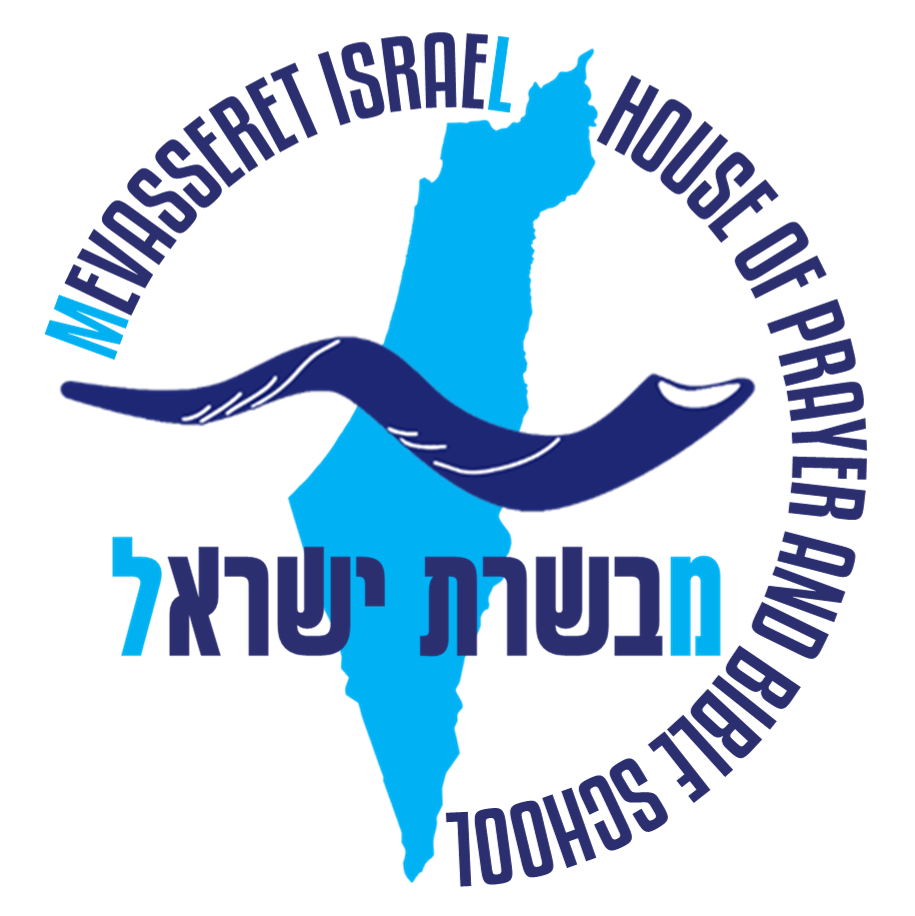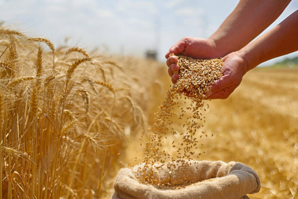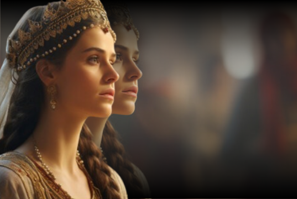Hanukkah Part 2 “The Victory, the Deception, and the Light of the Menorah”
Multi-Fulfillment of Bible Prophecies
We know that many Bible prophecies can have more than one fulfillment. Some of Daniel’s visions referred to governments contemporary with the prophet, but also to kingdoms that are yet to rise in the last days.
Let’s read about events leading up to the story of Hanukkah to understand one of the visions of the prophet Daniel.
Historical Overview
Alexander III of Macedon, known as Alexander the Great or Alexander the Great was king of the ancient Greek kingdom of Macedonia. Born in 356 BC, the young prince succeeded his father, King Philip II, on the throne at the age of twenty. He spent most of his years in power in a series of unprecedented military campaigns across Asia and northeast Africa. By the age of thirty he had created one of the largest empires in the ancient world, stretching from Greece to Egypt and northwestern India. He died at the age of 32 and is considered one of the most successful military commanders in history. Alexander conquered all the lands that were once part of the Medo-Persian empire that existed from the sixth to the fourth century B.C.
After his death, among Alexander’s successors, there were 4 more notable generals who divided his empire: Ptolemy, Antigonus, Cassander, and Seleucus.
Seleucus founded the Seleucid empire and his fourth successor was Antiochus IV, or Antiochus Epiphanes, the anti-messiah of the Chanukah story.
The Seleucid empire of Antiochus Epiphanes encompassed much of Asia, including Judea in Israel.
Interpreting the prophecy
Daniel 8:5-12
And as I was considering, suddenly a male goat (Greek Empire) came from the west, across the surface of the whole earth, without touching the ground; and the goat had a notable horn between his eyes (Alexander). Then he came to the ram that had two horns (Medo-Persian empire), which I had seen standing beside the river, and ran at him with furious power. And I saw him confronting the ram; he was moved with rage against him, attacked the ram, and broke his two horns. There was no power in the ram to withstand him, but he cast him down to the ground and trampled him; and there was no one that could deliver the ram from his hand. Therefore, the male goat grew very great; but when he became strong, the large horn was broken (premature death of Alexander the Great), and in place of it four notable ones (four generals who divided his empire) came up toward the four winds of heaven. And out of one of them came a little horn which grew exceedingly great toward the south, toward the east, and toward the Glorious Land (Israel). And it grew up to the host of heaven; and it cast down some of the host and some of the stars to the ground, and trampled them. He even exalted himself as high as the Prince of the host; and by him the daily sacrifices were taken away (Antiochus Epiphanes), and the place of His sanctuary was cast down. Because of transgression, an army was given over to the horn to oppose the daily sacrifices; and he cast truth down to the ground. He did all this and prospered.
Daniel lived between the 7th and 6th centuries B.C. and prophesied about events contemporary with him, about governments and empires from the sixth to the second century B.C. On the other hand, we see that according to Paul’s letter to the Thessalonians, events very similar to those of the Hanukkah story will still be fulfilled in the last days, before the Day of the Lord, the return of our King and Savior Yeshua.
2 Thessalonians 2:3-4 (Letter written by Paul in the 1st century AD)
‘Let no one deceive you by any means; for that Day will not come unless the falling away comes first, and the man of sin is revealed, the son of perdition, who opposes and exalts himself above all that is called God or that is worshiped, so that he sits as God in the temple of God, showing himself that he is God.’
The Victory of the Maccabees through Yehuda
The second leader of the Jewish revolt against the Greco-Seleucid empire was the third son of Mattathias of Modiin, Yehuda or Judah Maccabee.
The name macabi (maccabee in Hebrew) is widely used in Israeli culture, as a way to honor those heroes. Macabi is used to name companies such as health insurance, sports teams, and also the Macabiah games – sports tournament (olympics = Olympus, Greece x macabi – sons of Zion).
Also being a Jewish priest, Yehuda took command of the Jewish resistance to Greek forces after the death of his father Matitiahu. After defeating the Greek governor of Samaria, this led to even more impressive victories over the larger Greek armies at Beth-Horon and Emmaus. After that, Judah captured Mount Zion, cleansed the Temple of the paraphernalia of Hellenistic worship, rebuilt the sanctuary according to the prescriptions of the Torah, and reconsecrated it to the worship of the Lord.
The Cleansing and Dedication of the Temple
2 Maccabees 10:1-8
“Now Maccabeus and his company, the Lord guiding them, recovered the temple and the city: But the altars which the heathen had built in the open street, and also the chapels, they pulled down. And having cleansed the temple they made another altar, and striking stones they took fire out of them, and offered a sacrifice after two years, and set forth incense, and lights, and shewbread. When that was done, they fell flat down, and besought the Lord that they might come no more into such troubles; but if they sinned any more against him, that he himself would chasten them with mercy, and that they might not be delivered unto the blasphemous and barbarous nations. Now upon the same day that the strangers profaned the temple, on the very same day it was cleansed again, even the five and twentieth day of the same month, which is Casleu. And they kept the eight days with gladness, as in the feast of the tabernacles, remembering that not long afore they had held the feast of the tabernacles, when as they wandered in the mountains and dens like beasts. Therefore, they bare branches, and fair boughs, and palms also, and sang psalms unto him that had given them good success in cleansing his place. They ordained also by a common statute and decree, that every year those days should be kept of the whole nation of the Jews.”
In Numbers 9 we read about Pesach Sheni (Second Passover) in which the priests were not pure, they were not ready to celebrate the Passover on the 14th of Aviv and God commanded them to celebrate the Feast on the following month. Similarly, the Maccabees at the time of the Feast of Sukkot (Tabernacles) could not celebrate it, for they were hidden in caves by the persecution of the Greek armies. Thus, when they reconquered Zion, purified and rededicated the Temple to Adonai, they celebrated for eight days, as commanded by the Lord for the Feast of Sukkot.
Prophetic Memorials
In the passage above, from Maccabees, we see a decree being written, ordaining our people to remember what happened at that time, celebrating Hanukkah every year.
We can see the Feasts of the Lord as “Prophetic Memorials”, dates and events to be remembered, but also a season to prophesy future events, just as Paul declared, that there will again be another anti-messiah who will sit in the Temple, trying to look like Yeshua. As we celebrate the Feasts of the Lord, we are learning from history, the example of our brothers of the past and getting ready for the challenging days ahead of us.
Oil Miracle?
There is a well-known story that during the purification of the temple, oil was found to light the menorah for only one day, but the holy oil multiplied and lasted 8 days.
This story is not found in the early books of Maccabees, written in the first century B.C., nor in the writings of Flavius Josephus in the first century A.D. It appears only in the rabbinic teachings of the Talmud written around the sixth century A.D.
The truth is that many priests of the Hanukkah era became corrupted, compromising with the government of Antiochus. The miracle of the oil would have been “invented” to try to hide the corruption by the priests.
There is an article on the Jerusalem Post, written by an archaeologist, which reports on this subject in more detail:
https://www.jpost.com/opinion/op-ed-contributors/what-miracle-of-the-oil
True Miracle
We know that throughout the history of our people and nation of Israel, the true miracle has been the victory of a small army against a huge and powerful army, as in the time of David and other kings of Israel.
Even today, the size of our country, having around us so many large and powerful Arab nations that turn against us, just our existence is a miracle. “If it had not been the Lord who was on our side, now may Israel say;” (Psalm 124.1).
A few months ago, Iran launched into Israel 200 ballistic missiles in one night and not a single Israeli was killed!
Chanukiah or Menorah?
During the holiday of Hanukkah, traditionally, a 9-branched candelabra is used. The candle placed on the central stem, serves to light the other 8 candles. On the first night the central candle lights one candle, on the second night, it lights 2 candles, and so on, until the entire candelabra is lit, recalling the story of the Temple oil that lasted eight days.
Heavenly Pattern
The question to think about is, what was the lampstand lit by the Maccabees when they rededicated the temple? The menorah, the 7-branched candelabra! There is a menorah in Heaven and it was shown to Moses to be copied, reproduced, and kept burning in the temple day and night.
Let’s read important biblical passages about the menorah:
Exodus 25:31a-32,40
“You shall also make a lampstand of pure gold; the lampstand shall be of hammered work. And six branches shall come out of its sides: three branches of the lampstand out of one side, and three branches of the lampstand out of the other side. And see to it that you make them according to the pattern which was shown you on the mountain.
Zechariah 4:1-3, 9-10 (vision of the prophet in the 6th century B.C. – return, end of the exile in Babylon)
Now the angel who talked with me came back and wakened me, as a man who is wakened out of his sleep. And he said to me, “What do you see?” So I said, “I am looking, and there is a lampstand of solid gold with a bowl on top of it, and on the stand seven lamps with seven pipes to the seven lamps. Two olive trees are by it, one at the right of the bowl and the other at its left.”
“The hands of Zerubbabel have laid the foundation of this temple; His hands shall also finish it. Then you will know that the Lord of hosts has sent Me to you. For who has despised the day of small things? For these seven rejoice to see the plumb line in the hand of Zerubbabel. They are the eyes of the Lord, which scan to and from throughout the whole earth.”
According to the prophet’s vision, the menorah was the symbol used by God to speak about the rebuilding (dedication – Hanukkah) of the Temple after the Babylonian exile. The lampstand described is the 7-branched one as revealed to Moses on Mount Sinai.
According to Zechariah, the seven lamps represent God’s eyes that scan throughout the earth.
Revelation 4:5
And from the throne proceeded lightnings, thunderings, and voices. Seven lamps of fire were burning before the throne, which are the seven Spirits of God.
Once again, we see the menorah as a heavenly biblical symbol that here in Revelation is described as the representation of the 7 spirits of God.
Government Anointing
Isaiah 11:1-2
There shall come forth a Rod from the stem of Jesse, and a Branch shall grow out of his roots. The Spirit of the Lord shall rest upon Him, The Spirit of wisdom and understanding, The Spirit of counsel and might, The Spirit of knowledge and of the fear of the Lord.
We could take the Spirit of God as the central stem of the menorah, and its “manifestations” (wisdom, understanding…) as the side arms, remembering that the menorah refers to a tree, with a trunk and its branches.
The menorah is a symbol of government anointing. In Zechariah’s vision, God showed that Zerubbabel was the anointed one, had the authority to lead the rebuilding of the Temple. The passage from Isaiah that we read above and continuing in the following verses (3 and 4) refers to Yeshua’s government on earth.
In one of John’s visions, we see that Yeshua stands in the middle of the menorah:
Revelation 1:12,13
Then I turned to see the voice that spoke with me. And having turned I saw seven golden lampstands, and in the midst of the seven lampstands One like the Son of Man, clothed with a garment down to the feet and girded about the chest with a golden band.
There is a menorah located in front of the Israeli Parliament. The menorah is also the symbol of the coat of arms of Israel. In our understanding, it is the symbol that most represents our people and nation, and not the “Star of David or magen – shield of David”.
Light and darkness
During the holiday of Hanukkah, we teach our children about the darkness that had come against our people through the pagan Greek culture. We talk and sing songs about the importance of carrying Yeshua’s light in us, in order to be Biblical Zionist Warriors as the Maccabees were.
Luke 11:33-36
“No one, when he has lit a lamp, puts it in a secret place or under a basket, but on a lampstand, that those who come in may see the light. The lamp of the body is the eye. Therefore, when your eye is good, your whole body also is full of light. But when your eye is bad, your body also is full of darkness. Therefore, take heed that the light which is in you is not darkness. If then your whole body is full of light, having no part dark, the whole body will be full of light, as when the bright shining of a lamp gives you light.”
Hanukkah Sameach!
In the sublime love of Yeshua haMashiach.
Yoshua e Shoshana – Mevasseret Israel
Prayer Alerts and Articles




